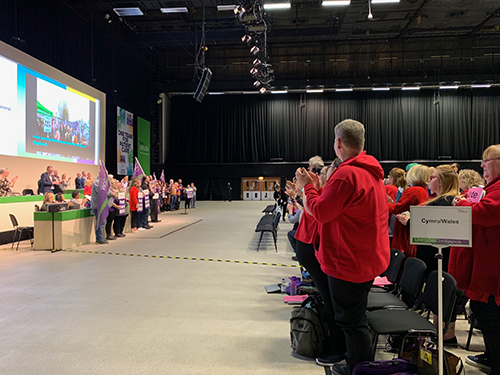NHS managers should do more to allow staff to work in flexible ways, including having more control over shift patterns or doing compressed hours*, says UNISON today (Wednesday).
Data from a new UNISON survey** shows a significant proportion of healthcare workers are not being given the alternative work patterns they’ve asked for.
The survey found two-thirds (65%) of women employed in healthcare across the UK who’ve asked for different work arrangements had their requests agreed in full.
But more than one in five (22%) were unable to obtain flexible working. A further one in eight (13%) had their requests initially refused, but eventually found acceptable compromises.
Health workers who took part in the survey included a woman who was refused changes to her work pattern despite the fact that her young daughter was diabetic and needed regular insulin injections.
Another NHS employee who looked after her 99-year-old grandmother requested a change in a shift start time to 9pm, to enable her to put her relative to bed. But her managers insisted she start at 7pm.
A more flexible approach could prove enough to persuade experienced, but jaded, staff to stay in the service and ensure the NHS can become a more attractive career option for would-be recruits, says UNISON.
Flexible working reforms were introduced in the NHS in 2021 in response to negotiations between health unions and the government. And from this month, staff across all sectors of the economy can ask for flexible arrangements from the first day of their employment.
UNISON’s survey of more than 12,000 women working in the healthcare sector found half (50%) of the women had not asked for flexible working, a third of whom were unaware it was even an option***. The union says staff and employers need greater awareness of the opportunities.
UNISON head of health Helga Pile said: “All NHS staff – whether they’re nurses, paramedics, operating theatre staff, porters, cleaners or control room workers – have a right to request flexible working. But some managers still have a take-it-or-leave-it attitude.
“NHS staff are leaving the service because they have no proper work-life balance. More freedom over working arrangements would help attract new staff and persuade more experienced employees to stay. That would help reduce vacancy rates, cut waiting times and improve the quality of care.
“Everyone benefits from greater flexibility. Not just the individual changing the way they work, but employers and patients too. A flexible approach can help tackle burnout, improve staff wellbeing and make for a more productive, contented workforce too.”
Notes to editors:
-*Compressed hours are when someone works their total contracted hours over fewer working days.
-**UNISON carried out the survey online from 2 to 7 February 2024. The findings are based on 12,085 responses from women working across the NHS in the UK.
-***Of those who said they had not requested flexible working, 30% said they did not need it, 30% said they did not know it was an option and 30% did not think any request would be approved.
-Click here for more details about Let’s Talk about Flex, a campaign involving NHS unions. This highlights how flexible working could play its part in helping ease the NHS staffing crisis. It says a better work-life balance for paramedics, nurses, healthcare assistants, cleaners and other NHS staff might help fill some of the thousands of vacancies. The initiative is aimed at raising awareness among staff – and employers – to use the right to request more choice over where, when and how they work.
-UNISON’s annual health conference continues until today (Wednesday) at the Brighton Centre, Kings Road, Brighton BN1 2GR. Health workers from across the UK have been debating a variety of motions including NHS pay, mileage rates, bank staff, shorter working weeks, support for healthcare students, tackling racism, mental health, sexual safety, healthcare assistant rebanding, artificial intelligence and safe staffing.
– UNISON is the UK’s largest union with more than 1.3 million members providing public services in education, local government, the NHS, police service and energy. They are employed in the public, voluntary and private sectors.
Media contacts:
Anthony Barnes M: 07834 864794 E: a.barnes@unison.co.uk
Liz Chinchen M: 07778 158175 E: press@unison.co.uk
The article Let more NHS staff work flexibly to help solve staffing crisis first appeared on the UNISON National site.

